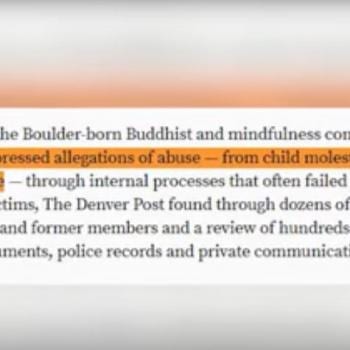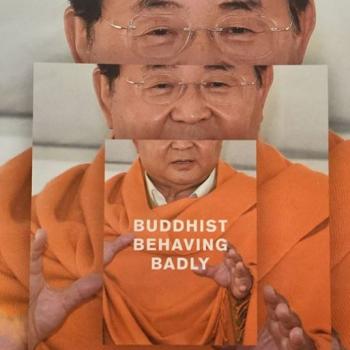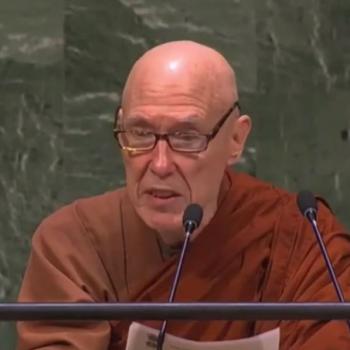In Buddhism, anger (Pali: dosa) is one of the three root causes of suffering, along with greed (lobha) and delusion (moha).
In an excellent article in the Journal of Buddhist Ethics, Dan Cozort discusses the exegesis on anger by the 14-15th century founder of the Geluk school of Tibetan Buddhism, Je Tsongkhapa (1357-1419). Christopher Ives gives a thoughtful summary of this and other articles in a following paper here.
In the article we find Tsongkhapa struggling over the statement that “anger cuts the roots of virtue” – as if suggesting extraordinary negative effects of anger. Not only that, anger is said to cut the virtue that one has accumulated for thousands of aeons.
The assertion raises many of the common problems of interpreting Buddhist texts. Was it a sort of hyperbole meant to underline the destructive effects of anger, but not meant to be taken literally? Was it meant only for a specific audience, not to be extrapolated out as a general rule? Or perhaps an introduction into teaching kindness or other virtues to mediate the inevitable effects of one’s anger?
You’ll have to read the paper yourself to see what Tsongkhapa thought of it and the potential pitfalls of his reading. But it is worth a pause to examine the place of anger in our own lives and in those around us. The article below (at bottom) and others linked from it, such as this one on emotionally irrational behavior, may help.
In Buddhism, we have two important tools for dealing with anger: meditation and sangha (community). In meditation we learn to sit with all that arises, positive and negative, avoiding clinging and fixating on any particular moments of feeling or thought. This can help when anger, or its precursor, being upset, arise within us. We can then stay calm with the arising emotion, accepting the “ripples on the pond” of our mind. Hopefully we can even tell others around us of what is happening, without projecting out onto them or other external sources.
In dealing with anger in others the process is much the same. We avoid reifying “self” and “other” in the anger of the moment, observing, knowing that the anger is a learned mechanism from the person and that it is not personal (even if he/she insists that it is). In my experience this works well, but only in the short term. See the article above for when dealing with a person with persistant anger problems. In dealing with persons with persistent anger, unfortunately we can fall into the trap of self-denial (as discussed below/bottom), which will lead to its own anger. In such cases, the best you can do “is to stop engaging – to lovingly disengage. This means that you walk away from the interaction with love, not judgment, in your heart.” (from here)
This underscores the importance of our second tool in Buddhism: community. Anger often has an alienating capacity. Those who are very angry often become quite isolated, sometimes escaping to their own worlds as they push so many away in the real world around them. For those suffering with anger, acknowledgment is key, accepting that there is a problem within and admitting this to others will inevitably lighten the burden of holding the anger. A strong and supportive community can help to unveil the roots of that anger (often childhood experiences) and help re-parent or reform the individual. With time, one can disengage with his/her own anger and enter the trusting arms of others without reserve.
For those who are in close proximity of a person with great anger, community is also essential. It is community that reassures the person that it’s not personal, because even with great mindfulness, the bombardment of anger from a loved one can and will undercut a person’s calm and self-esteem. And it is also important because being with an angry person will also be very alienating, as it often leads to giving up social ties and activities so as to try to not set off the person’s anger. In the short term or long, all links in the net need secure bonds. Anger seeks to break these wherever it goes. But through love, meditation, calm, and community the bonds can be replaced and made stronger than ever before.
With metta, wishing that all beings be happy.
Support independent writing here and join a community of fellow learners at Patreon.











